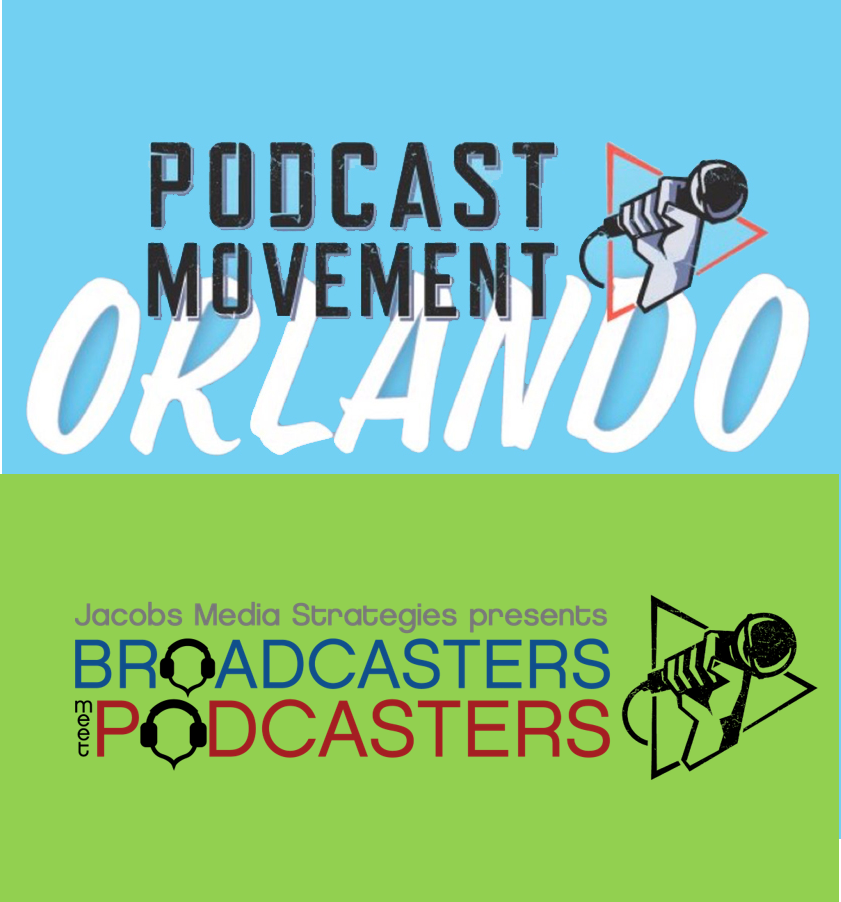
Here we go again – back with Podcast Movement for the fourth year. And look how far we’ve come!
Actually, that’s me being sarcastic, because as much as the media community would like to believe that podcasting is maturing, exploding, and coming into its own, the facts get in the way.
Everyone is talking about podcasting, and many are seeking out new careers in the space. Sponsors are lining up to participate in this media gold mine. And now there’s a land grab taking place to sign up celebrities from all walks of life to do a podcast. Every week, new players jump into the branded podcast space.
And yet, we’re still debating the very foundation of this still-nascent medium – after 15 years. This year at our Broadcasters Meet Podcasters sessions, one of our keynotes is Steve Lickteig – the guy in charge of NBC News’ audio and podcasting division. Steve oversees those high-profile podcasts for hosts like Chris Hayes and Rachel Maddow. He says podcasting’s current phase could best be called “The Second Wild West.”
And he’s right. That’s because for every media maven who’s bullish on podcasting (usually those with a horse in the race), others wonder when the inevitable bust will come. This latter group is convinced there will be a “correction,” a sell-off, a reckoning. When you consider that O. J. Simpson is considering throwing his glove into the podcasting arena, it’s hard not to wonder how long this alleged boom will last. The podcasting shark has officially been jumped.
And that brings us to the other reality that after all this time, we’re still debating many of the fundamental questions plaguing podcasting:
- Does the name “podcasting” present a barrier to success?
- What is the ideal length for a podcast?
- How soon after launch can podcasts be monetized?
- Why has half the American population still not listened to a podcast?
- Why are podcasting metrics so limited and crude?
- Why is it so difficult to discover great podcasts?
- When is Google going to make it easier to access and listen to podcasts on their Android platform?
- Why does “podfade” – those throwing in the towel on their podcast dreams – continue to occur in record proportions?
- Can you really use the F-bomb in a radio station-produced podcast?
- Will I be the last person on earth who doesn’t have a podcast?
OK, that last question is made up. But I seriously hear the “F’-bomb question with some regularity from radio people. And while many podcasts contain the 7 so-called dirty words, that is not typically why they’re appealing. Nor is it the point.
But the “podfade” question is a better example of the conundrums that plague the space. Recently, two of the smartest people in the podcasting community – 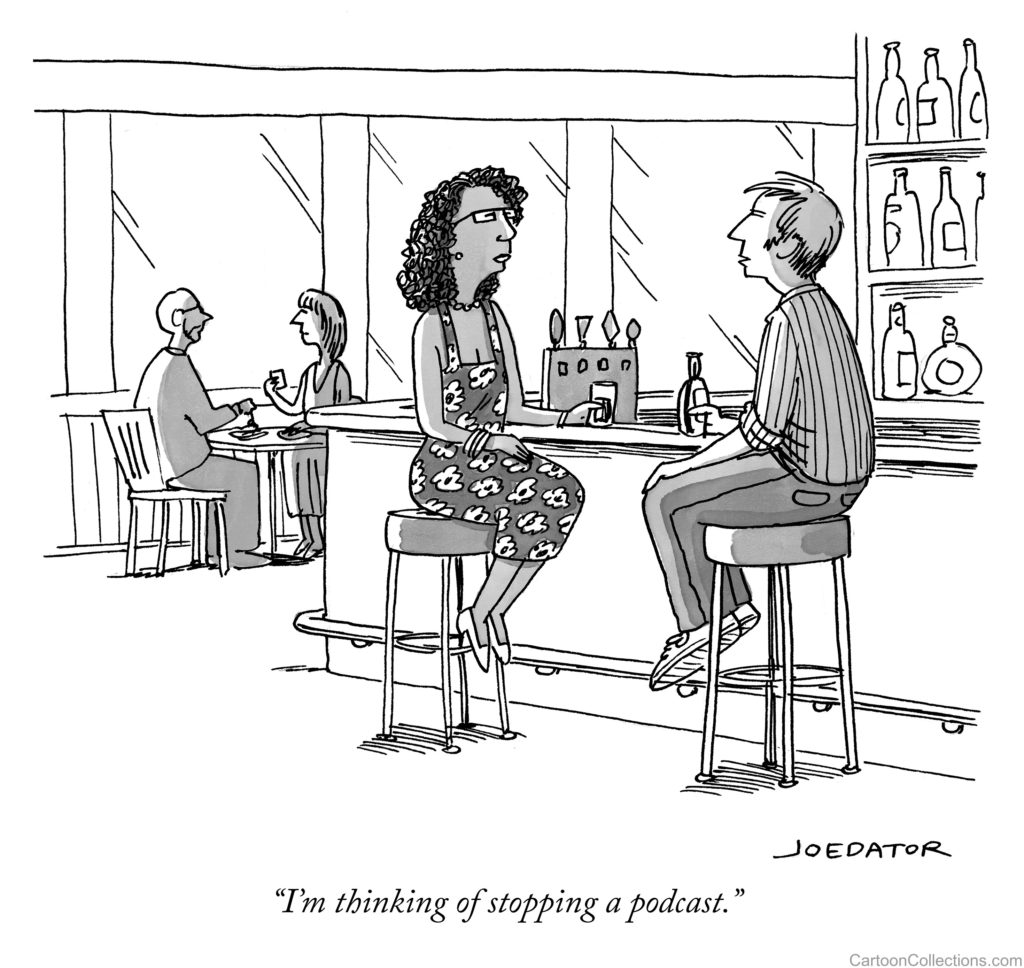 Amplifi Media’s Steve Goldstein and Edison Media’s Tom Webster respectfully squared off on the topic.
Amplifi Media’s Steve Goldstein and Edison Media’s Tom Webster respectfully squared off on the topic.
In a “Blogstein” post, Steve spoke with Blubrry’s Todd Cochrane about the alarmingly high incidence of “podfading.” Noting there are well more than 700,000 podcasts in existence (and growing by thousands with each passing month), Steve concluded this phenomenon will continue as more podcasts are out of production than in:
“One thing is clear, even as the podcast business continues to explode, the gravitational pull downward will continue as the reality sets in that good content is time consuming and hard to produce, and for many, audiences are hard to attract.”
Days later, Webster countered, with an alliterative article in Medium – “A Pointed Perspective on the Purported Podfading Problem.” (Spiro Agnew would’ve been proud.)
Tom made the point that of the more than 1,500 prime TV shows in existence, a similar percentage of these shows has “telefaded” – in step with the proportion of podcast fails. Tom’s conclusion?
“The only difference between a TV show and podcast is who decides to cancel it.”
A week later, The New York Times weighed in with their perspective in a story by Jennifer Miller: “Have We Hit Peak Podcast?”
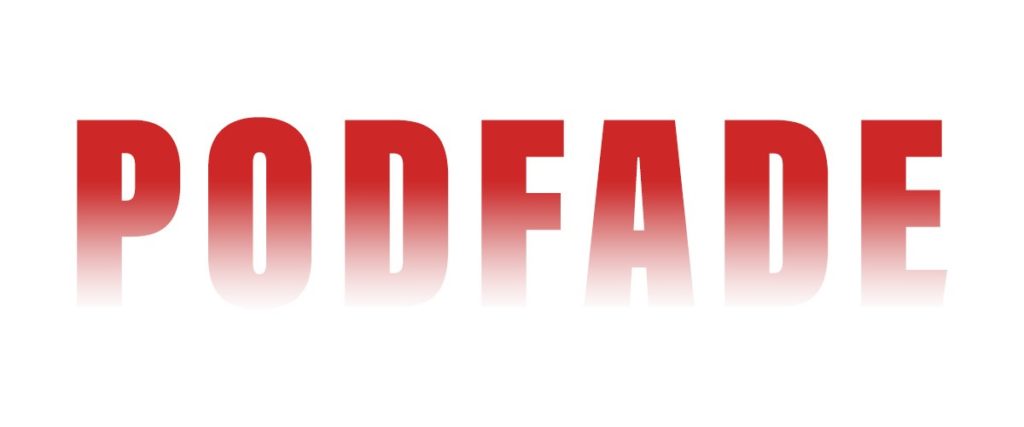 She profiled would-be podcaster Morgan Mandriota who optimistically – or unrealistically – started an advice podcast in 2016. As she told Miller, “We assumed we’d be huge, have affiliate marketing deals and advertisements.”
She profiled would-be podcaster Morgan Mandriota who optimistically – or unrealistically – started an advice podcast in 2016. As she told Miller, “We assumed we’d be huge, have affiliate marketing deals and advertisements.”
After a mere six episodes, The Advice Podcast predictably “podfaded,” Pacific Content’s Steve Pratt points out the problem with these banal “bantercasts.”
“People assume that’s all a podcast is: two people talking unedited for two, three hours.”
And Tom Webster is quoted in the same New York Times story, apparently concurring about the high quantity of low quality podcasts:
“So many…are just painful. We revere the great interviewers, but it’s an incredible skill that nobody has.”
And thus explains why so many podcasting start-ups crash and burn, often after just a few episodes.
It also reinforces why Jacobs Media is committed to bringing broadcasters and podcasters together each year at Podcast Movement to provide guidance and learning. This is our effort to improve the relationship between the two communities, create a forum where they can learn from one another, and improve the role of podcasting in the audio hierarchy.
That’s what “Broadcasters Meet Podcasters” is all about. And we invite you to join us in balmy Orlando next month for an expanded three days of panels, sessions, and keynotes, designed to make you smarter.
After 17 Jacobs Summits, three Dash Conferences, and a handful of Alternative Boot Camps, we’ve got this conference planning thing figured out. My team – Seth Resler and Paul Jacobs – has put together a great agenda worthy of your time. During the course of the Podcast Movement conference, our “Broadcasters Meet Podcasters” track will feature three killer keynotes to kick off each day – Wednesday through Friday.
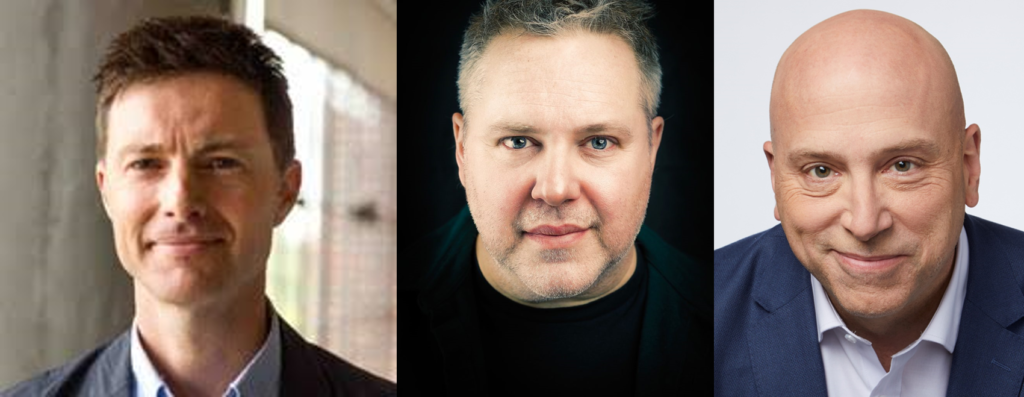
- Conal Byrne, creator of Stuff Media and the How Stuff Works podcast opens our sessions Wednesday morning. Conal is now the President of the iHeart Podcast Network, and will talk about the merging of a great podcasting company with the nation’s biggest broadcaster. Conal will let us look under the hood to see how this experiment is going, and what we can learn from it.
- Eric Nuzum was the developer of the iconic Invisibilia podcast as well as other podcasts for NPR. He also headed up Audible’s audio efforts, and is the author of a new book, Make Noise: The Creator’s Guide to Podcasting and Great Audio Storytelling, that will be released later this year. We’ve known Eric since our early days at NPR. He’s a brilliant speaker, a serial truth-teller, and a hardcore realist. He’s been at the epicenter of the podcast revolution, and he’ll share his compelling story with us on Thursday morning.
- Steve Lickteig, executive producer of audio for NBC and MSNBC, and the guy behind Rachel Maddow’s Bag Man, Chris Hayes’ Why Is This Happening?, former U.S. Attorney and FBI counsel Chuck Rosenberg’s The Oath, and others. When it comes to working with high-profile (and perhaps high-maintenance) talent in the podcasting space, Steve is the man. Paul will interview him for Friday’s keynote.
Through the course of “Broadcasters Meet Podcasters,” we have great sessions among podcasting’s savviest and smartest, including branded podcasts, voice commands and podcasting, true crime podcasts, and a panel about why public radio is leading the league in the space. The aforementioned Steve Goldstein and Steve Pratt will be on our stage, along with luminaries like Mignon Fogarty (Grammar Girl), Tom Leykis, Daniel J. Lewis (The Audacity to Podcast), Keri Hoffman (PRX), Shannon Cason (Homemade Stories), and a host of brilliant podcasters and broadcasters.
Seth will be back with another edition of “Podcast Makeover,” and I’m trying something never-before-done at Podcast Movement – a live focus group 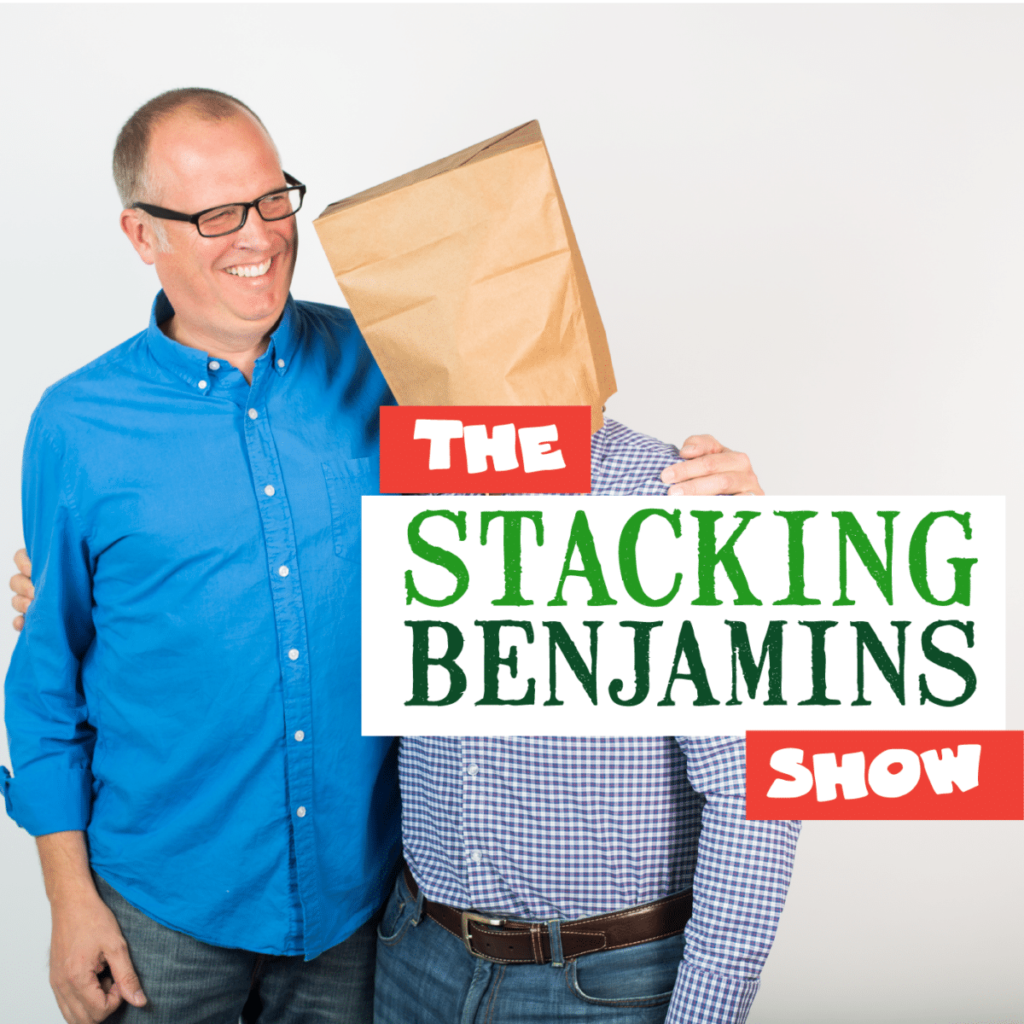 among listeners of the popular Stacking Benjamins podcast. I’ll interview a group of end-users of the podcast live on our “Broadcasters Meet Podcasters” stage, and then bring out its courageous host, Joe Saul-Sehy to meet his listeners. Unlike DJs subjected to aircheck sessions and research studies, most podcasters are not the least bit critiqued – by anybody. For the platform to improve, that has to change.
among listeners of the popular Stacking Benjamins podcast. I’ll interview a group of end-users of the podcast live on our “Broadcasters Meet Podcasters” stage, and then bring out its courageous host, Joe Saul-Sehy to meet his listeners. Unlike DJs subjected to aircheck sessions and research studies, most podcasters are not the least bit critiqued – by anybody. For the platform to improve, that has to change.
And on Friday morning, it’s “Podcasting Speed Mentoring” – many of our session speakers and panelists will be seated at 10-top tables, ready, willing, and able to answer all questions from broadcasters, podcasters, or both. The idea is to learn from one another, get smarter, and ultimately produce better and more successful podcasts.
None of us has all the answers, and that’s why this conference is so important to our collective learning. While I will have my moments on the “Broadcasters Meet Podcasters” stage, you’ll also find me sitting in the first few rows, copiously taking notes.
We invite you to join us at Podcast Movement, and hope you spend a lot of time in the Jacobs Media “Broadcasters Meet Podcasters” room.
Together we can wipe out the scourge of “podfading” in Marc Maron’s lifetime.
“Broadcasters Meet Podcasters” is free to all Podcast Movement attendees. You can learn more about the conference and registration here.
- Can Radio Afford To Miss The Short Videos Boat? - April 22, 2025
- Media And Technology In 2025: Believe It Or Not! - April 18, 2025
- In Radio, You Just Never Know - April 17, 2025




16 consecutive weeks of pods, and counting. Counting the days until my head explodes from extreme exposure to Halloran. And we curse ALOT. Actually it’s the only thing that keeps us motivated I look forward to the incredible amount of profanity we generate each week.
It’s bracing…
It’s a true test of your stamina, Max. Embrace it.
At least with O.J., if you simply tune in it will be easy to tell if he’s become the latest podfade victim: “If the glove don’t fit, he must’ve quit.”
Good call!